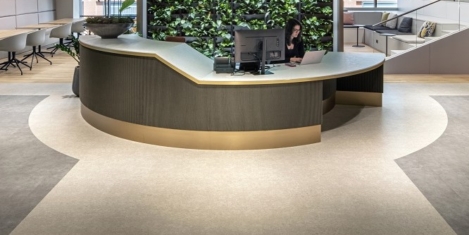To provide the best experiences, we use technologies like cookies to store and/or access device information. Consenting to these technologies will allow us to process data such as browsing behaviour or unique IDs on this site. Not consenting or withdrawing consent, may adversely affect certain features and functions.
The technical storage or access is strictly necessary for the legitimate purpose of enabling the use of a specific service explicitly requested by the subscriber or user, or for the sole purpose of carrying out the transmission of a communication over an electronic communications network.
The technical storage or access is necessary for the legitimate purpose of storing preferences that are not requested by the subscriber or user.
The technical storage or access that is used exclusively for statistical purposes.
The technical storage or access that is used exclusively for anonymous statistical purposes. Without a subpoena, voluntary compliance on the part of your Internet Service Provider, or additional records from a third party, information stored or retrieved for this purpose alone cannot usually be used to identify you.
The technical storage or access is required to create user profiles to send advertising, or to track the user on a website or across several websites for similar marketing purposes.
 Over half of UK based ‘deskless’ workers (51 per cent) say they’re viewed as expendable by their employer. Plus, almost a third (32 per cent), feel that their corporate, desk-based colleagues regard them as inferior. These are the findings from O.C. Tanner’s 2024 Global Culture Report which gathered data and insights from more than 42,000 employees, leaders, HR practitioners, and executives from 27 countries worldwide including 4,818 from the U.K (of which 1,734 are deskless). More →
Over half of UK based ‘deskless’ workers (51 per cent) say they’re viewed as expendable by their employer. Plus, almost a third (32 per cent), feel that their corporate, desk-based colleagues regard them as inferior. These are the findings from O.C. Tanner’s 2024 Global Culture Report which gathered data and insights from more than 42,000 employees, leaders, HR practitioners, and executives from 27 countries worldwide including 4,818 from the U.K (of which 1,734 are deskless). More →















 Mark Eltringham is joined for a glass of red wine (or two) by Esme Banks-Marr of BVN architects and Jo Sutherland of Magenta. They discuss the joys of shared space, when people should tell AI to FO, the limits of workplace design, how to create a great culture wherever people work and much more.
Mark Eltringham is joined for a glass of red wine (or two) by Esme Banks-Marr of BVN architects and Jo Sutherland of Magenta. They discuss the joys of shared space, when people should tell AI to FO, the limits of workplace design, how to create a great culture wherever people work and much more. 
 According to
According to 
 Office workers now spend more time in the office, with the average creeping up to three and a half days per week compared to
Office workers now spend more time in the office, with the average creeping up to three and a half days per week compared to 


















November 29, 2023
Creating the epicentre: unlocking the untold benefits of next-generation office spaces
by Nathan Thomas • Comment, Flexible working, Property, Technology